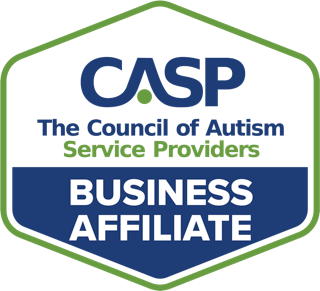About this Webinar
Given many states, local, and business mandates during the current pandemic, it is likely that students and clients will continue to be required to wear facial masks when attending school, work, and other community activities for the foreseeable future.
Compliance with wearing a face mask can be challenging for individuals with autism and other developmental disabilities. Often staff may see an increase in behavioral challenges related to clients tolerating masks worn by others, putting on a mask themselves, or adhering to long durations of mask-wearing. With these challenges may often come a correlated decrease in on-task behaviors related to learning or work responsibilities.
While increasing learner cooperation with wearing masks may be a novel skill being targeted by clinicians with their clients, the strategies for doing so are not. Although research is still limited on gaining compliance with masks, previous research can be extended to successfully target this particular skill. Behavior analytic programming has been shown effective in teaching skills such as tolerating hair cuts, blood draws, toothbrushing, and visits to doctors’ offices, as well as compliance with wearing eyeglasses and medical alert bracelets. These technologies can be extrapolated and utilized to also increase toleration and cooperation with wearing masks.
If you enjoyed this webinar, we recommend checking out our ABA Telehealth Webinar: How To Support Families Remotely webinar.
About the Guest Speaker

Erin Richard White, Ph.D., BCBA-D
BCBA at Atlantic Health System
Dr. Erin Richard White of Atlantic Health System (previously Alpine Learning Group) presents several teaching options that can be effective with a variety of learners, including providing choice, using desensitization and shaping techniques, programming reinforcement, modeling, and other antecedent and consequence strategies.










